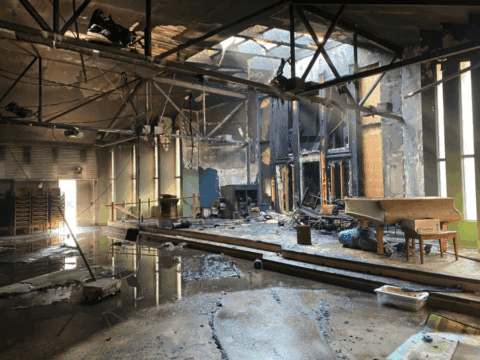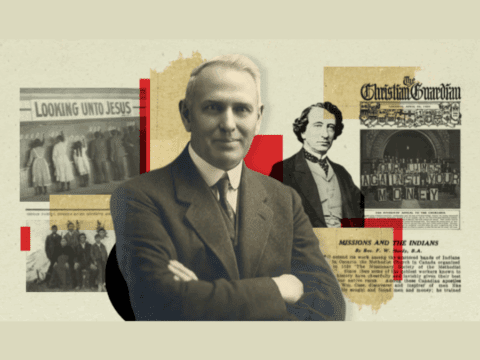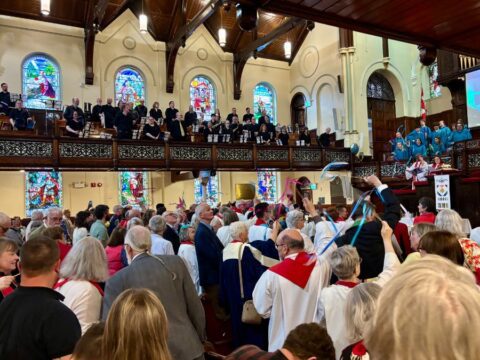The General Council has adopted in principle a set of precepts to use in making decisions about church justice work. But it’s not clear who exactly will be using them.
The seven categories were fine-tuned from a list of 14 principles presented to the full General Council meeting in 2022 and aimed specifically at issues around peace and solidarity in Palestine and Israel. At its October recall meeting, General Council decided to work on the precepts, while other proposals calling for action on Palestine and Israel — including naming Israel an apartheid state and adopting boycott, divestment and sanctions (BDS) strategies — never came to a vote.
The condensed version of principles, set out by the church’s Theology and Inter-Church Inter-Faith Committee, can be applied to all justice concerns. The categories of principles are: anti-oppression; truth-telling; holistic scope; respect for human dignity; full participation and decolonization; equity, mutuality, respect and reparations; plus costly and prophetic solidarity.
More on Broadview:
- United Church condemns violence by Hamas and Israel and calls for ceasefire
- United Church of Canada’s General Council to vote on church leadership strategies at this annual meeting
- Vote to let Indigenous church decide its future would show ‘we are our own elders’: gathering delegate
Those principles can be used immediately in church decision-making and will be fine-tuned then brought to the 45th General Council in 2025 for final approval.
Commissioner Rev. Kenji Marui of Sarnia, Ont., asked whether the principles could be applied to the proposals on Palestine and Israel tabled last year. General secretary Rev. Michael Blair said he was “not sure,” but the principles could be used to consider current requests from church partners.
“I think the intent is to use these right away,” said Rev. Allison Etter of Glace Bay, N.S., chair of the Theology and Inter-Church Inter-Faith Committee that reworked the principles. She said the committee “decided…we will give ourselves time to try and see how they apply to a number of issues.”
***
Mike Milne is a writer in Owen Sound, Ont.















No congregation in the UCC needs to feel coerced to agree with any decision the General Council makes on social political issues. Indeed if you dont agree, its now time to publicly declare your disagreement respectfully with reason to such things like declaring Israel an apartheid state.
“To place below a separator line, in teal, in every story:”
is visible at the top of teal text.
It would be great if Church News became available as a menu selection, an then articles in that section arranged in chronological order.